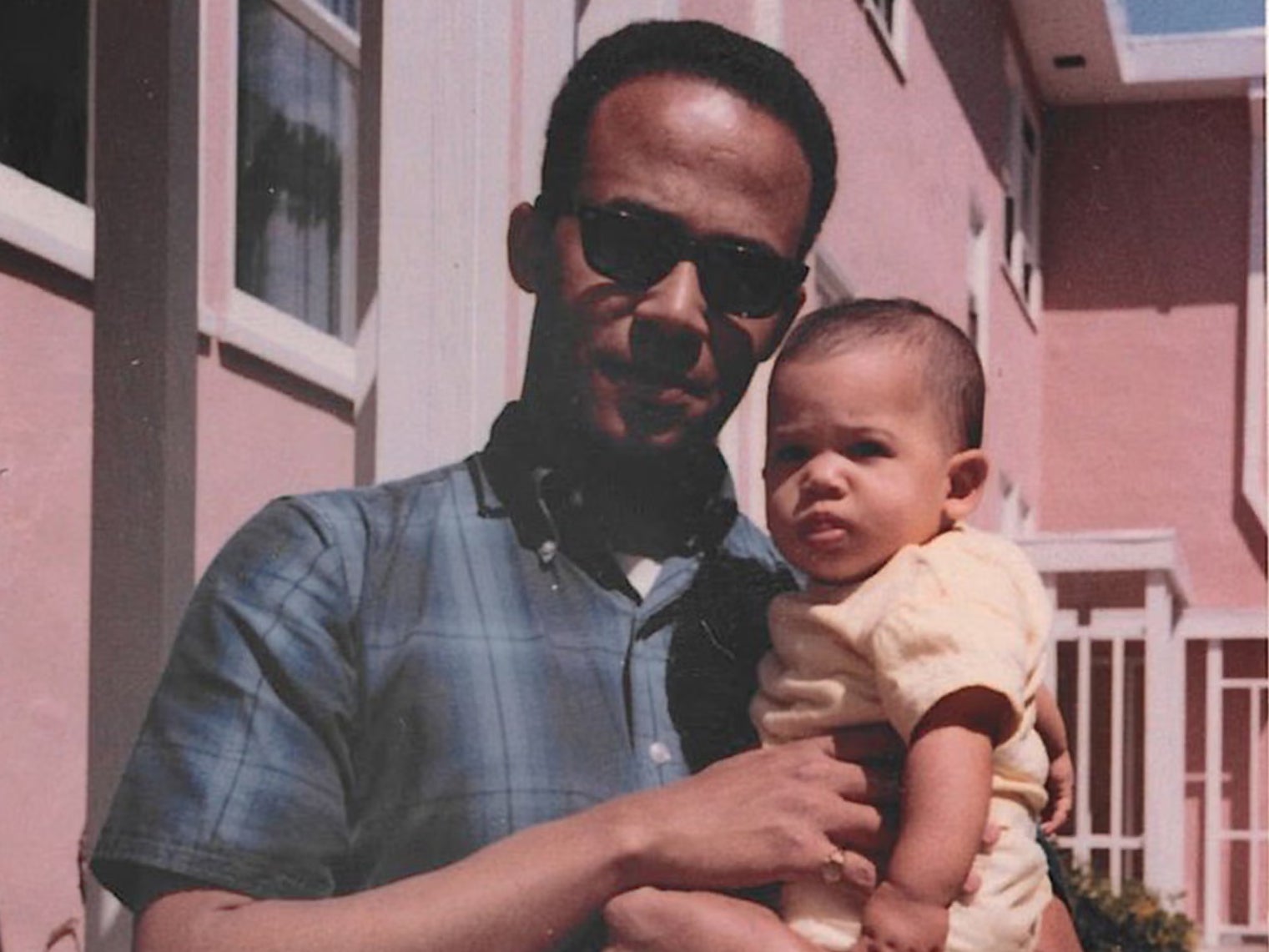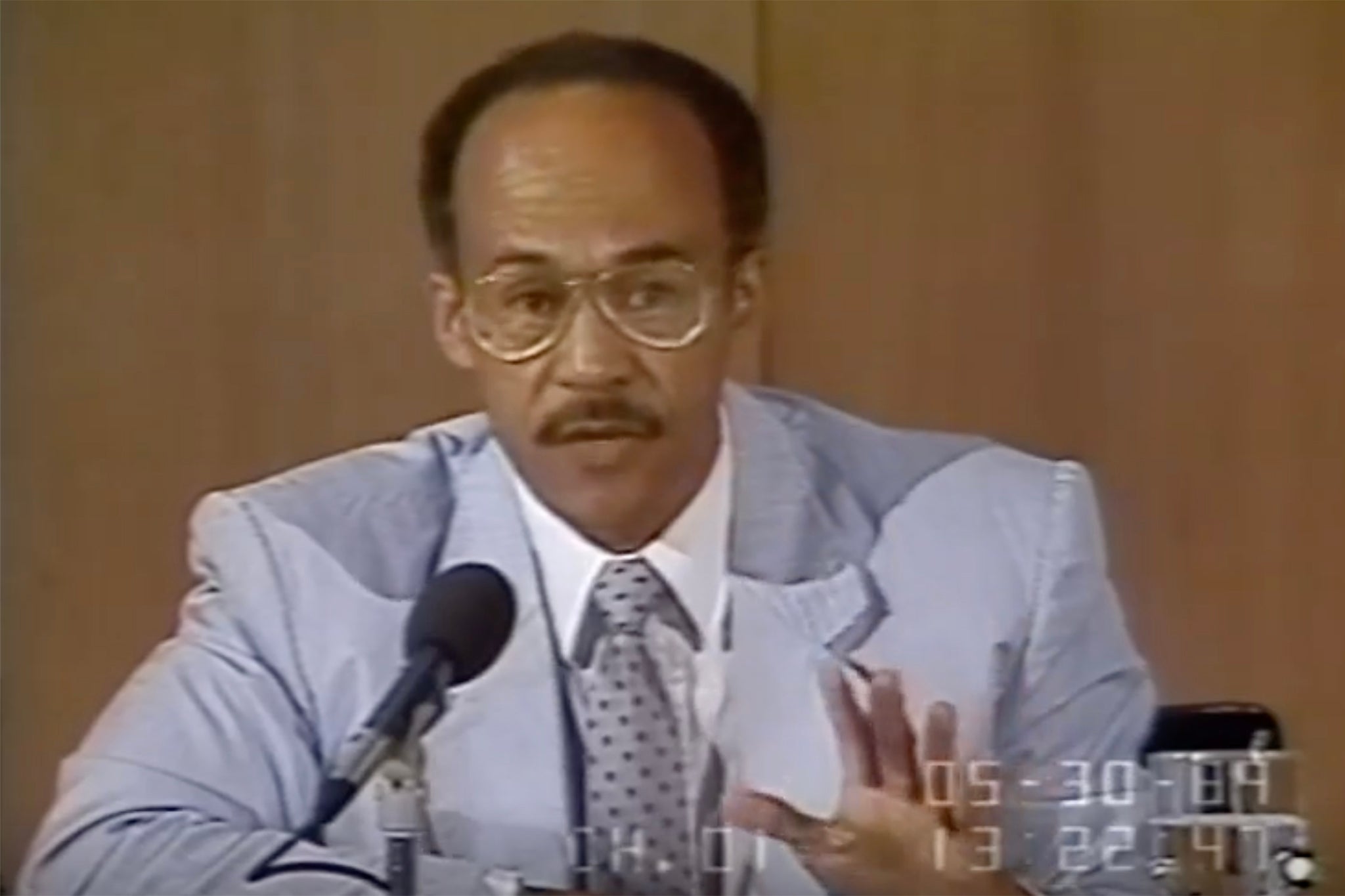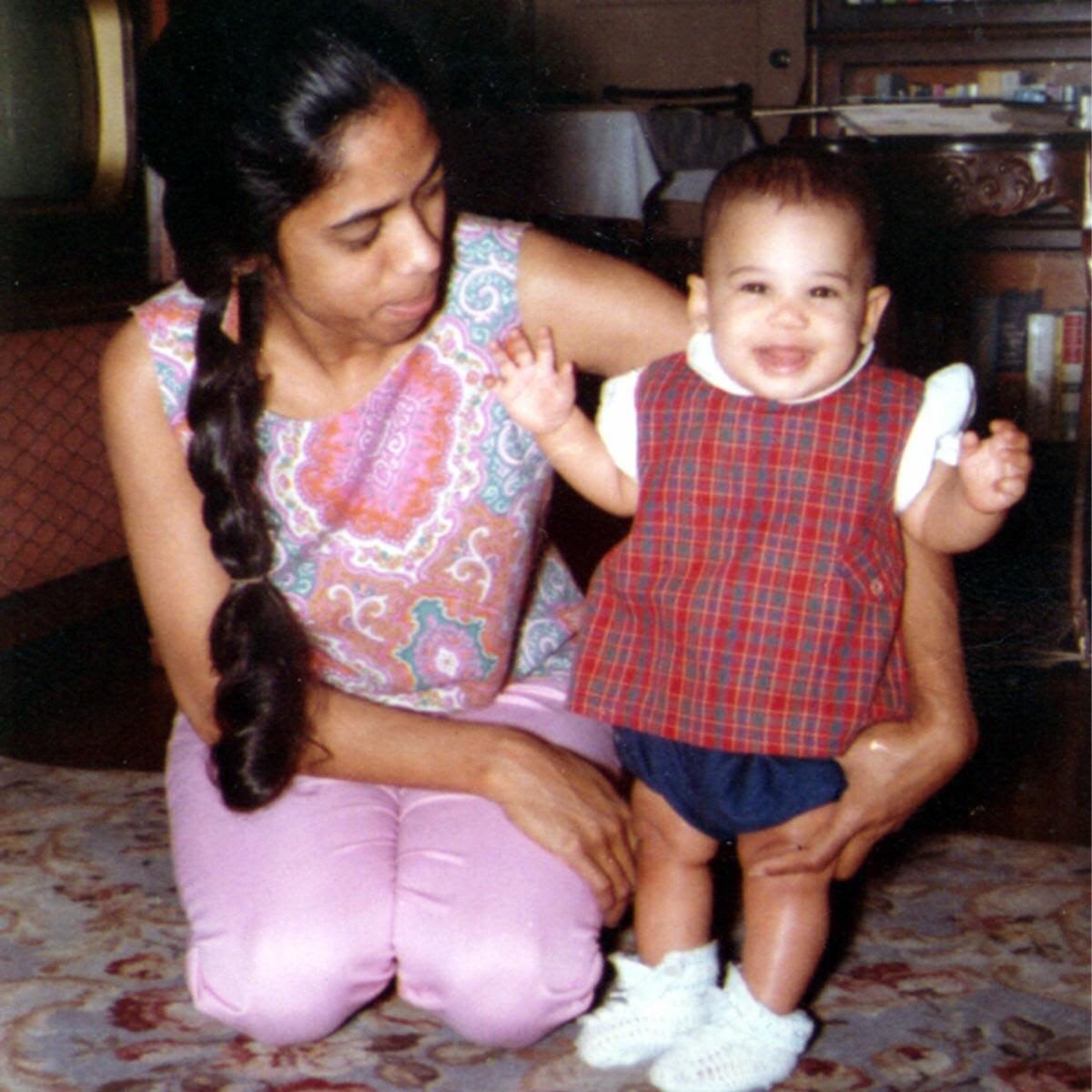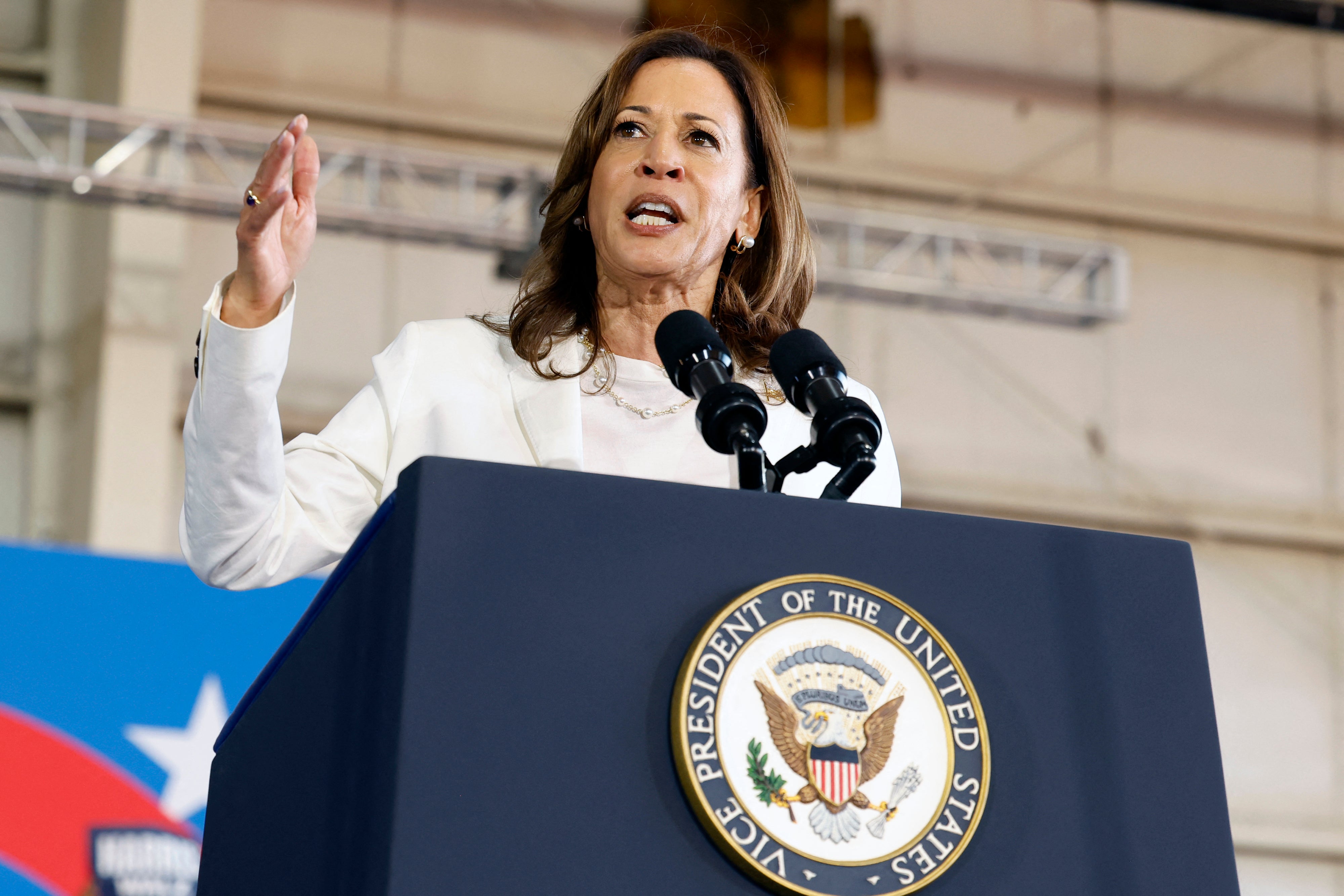Kamala Harris says her dad taught her to be fearless, but he’s been markedly absent from her public rise
Family is at the forefront of Kamala Harris’ presidential campaign, and she speaks frequently and fondly of her late mother’s influence – but rarely is there mention of her father. A “Marxist” economics professor who left Jamaica for UC Berkeley, Donald J Harris has said little about his daughter during her meteoric rise – other than to scold her, writes Sheila Flynn

Your support helps us to tell the story
From reproductive rights to climate change to Big Tech, The Independent is on the ground when the story is developing. Whether it's investigating the financials of Elon Musk's pro-Trump PAC or producing our latest documentary, 'The A Word', which shines a light on the American women fighting for reproductive rights, we know how important it is to parse out the facts from the messaging.
At such a critical moment in US history, we need reporters on the ground. Your donation allows us to keep sending journalists to speak to both sides of the story.
The Independent is trusted by Americans across the entire political spectrum. And unlike many other quality news outlets, we choose not to lock Americans out of our reporting and analysis with paywalls. We believe quality journalism should be available to everyone, paid for by those who can afford it.
Your support makes all the difference.Kamala Harris was on her 2019 memoir promotion tour when she joked around with radio host Charlamagne the God, the future vice president cheekily answering his question about whether she’d ever used marijuana.
“Half my family’s from Jamaica,” she said. “Are you kidding me?”
The man responsible for that half of the family, however – the politician’s father, economist Donald J. Harris – wasn’t laughing. Despite his virtual invisibility throughout Harris’ political rise, her father chose that moment to raise his head above the parapet.
He sent a letter to a media outlet in his native Jamaica, publicly scolding her like a naughty child.
“My dear departed grandmothers (whose extraordinary legacy I described in a recent essay on this website), as well as my deceased parents, must be turning in their grave right now to see their family’s name, reputation and proud Jamaican identity being connected, in any way, jokingly or not with the fraudulent stereotype of a pot-smoking joy seeker and in the pursuit of identity politics,” he wrote.

“Speaking for myself and my immediate Jamaican family, we wish to categorically dissociate ourselves from this travesty.”
His daughter’s representatives made no comment at the time, at least not publicly, and the professor again went silent.
“I have decided to stay out of all the political hullabaloo by not engaging in any interviews with the media,” he wrote in an email reviewed at the time by POLITICO.
And it seems he stayed true to his word; there’s been nary a peep from the 85-year-old Stanford emeritus professor as his daughter’s White House campaign makes waves across America.
The weed brouhaha, however, seems a nod to a long-term fraught relationship between the two – even if the seeds for Harris’ political aspirations can be clearly seen from the early days of her parents’ university courtship.
Donald broke academic barriers a generation before his ceiling-shattering daughter. Born in Jamaica in 1938 and raised in St Ann Parish, he was descended on his father’s side from planter and slave-owning politician Hamilton Brown, founder of Brown’s Town on the island.
The academic has credited his grandmothers as his greatest early influences. His father’s mother, Miss Chrishy (born Christiana Brown), owned a dry goods store on the main street of Brown’s Town and “sparked my interest in economics and politics simply by my observing and listening to her in her daily routine,” he wrote in 2018, including listening to her chats about politics with family and friends.
Donald spent summers on a cane farm run by his maternal grandmother, Miss Iris (Iris Finegan), which sparked his interest in the role sugar played in the country’s economy, including its slave trade.
“It was this early intimate exposure to operation of the sugar industry at the local level of small-scale production with family labour and free wage-labour, coupled with my growing curiosity about how these things came to be, that led me, once I started reading about the history of Jamaica, to a closer study of the sugar industry,” he wrote in Jamaica Global. “I came then to understand its origin as a system of global production and commerce, based on slave labour, with Jamaica as a key component of that system from its very start.”

He attended the University of the West Indies before graduating from the University of London and later earning a PhD from UC Berkeley.
It was at Berkeley where he met Kamala’s mother Shyamala Gopalan, who’d left her home in India as a teenager in 1958 to pursue a doctorate in nutrition and endocrinology. She fell in love with Donald, her first boyfriend, “in that most American way – while marching together for justice in the civil rights movement of the 1960s,” Harris said in her 2020 Democratic National Convention Speech.
The foreign students were active in leftist circles at Berkeley, and Shyamala was welcomed into Black groups as a person of color who’d grown up under the colonial system.
“She was part of the real brotherhood and sisterhood. There was never an issue,” one of the couple’s contemporaries, Aubrey LaBrie, told The New York Times in 2020. “She was just accepted as part of the group.”
Another member, Anne Williams, called Donald “reserved and academic in his presentation” while Shyamala was “warm” and “charming,” according to the Times.
“There was no doubt about that, they were very much together, very much in love,” added another academic they’d known at the time, Baron Meghnad Desai.
The couple married, then welcomed Kamala in 1964, followed by her sister Maya two years later. They brought the young sisters to visit family in Jamaica, where Donald retraced with them the steps of his upbringing in the hopes of sharing “the lessons I had learned along the way,” he wrote in Jamaica Global Online.
He wanted his daughters to know they could do anything — although he may not have expected the answer to be the President of the United States. His lessons went beyond their personal aspirations and were meant to awaken a broader sense of social awareness and responsibility, he wrote.
He said he wanted to teach them “that the sky is the limit on what one can achieve with effort and determination and that, in this process, it is important not to lose sight of those who get left behind by social neglect or abuse and lack of access to resources or ‘privilege’,” he wrote. “And that it is important to ‘give back’ with service to some greater cause than oneself.”

Her parents’ marriage was rapidly dissolving, however, and they separated when Harris was around five, when her father took a job at the University of Wisconsin. The couple divorced several years later, and the economics professor worked at other midwest universities before joining the faculty at Stanford.
“I’ve often thought that had they been a little older, more emotionally mature, maybe the marriage could have survived,” Harris wrote of her parents. “But they were so young.
“My father remained a part of our lives. We would see him on weekends and spend summers with him in Palo Alto. But it was really my mother who took charge of our upbringing. She was the one most responsible for shaping us into the women we would become.”
Her mother is the one she speaks of most often during speeches. And Donald rarely appears in the rest of Harris’s memoir, although Harris describes the divorced kid’s dilemma of inviting both of her parents to her college graduation “even though I knew they wouldn’t speak to each other.”
Her mother was late and Harris feared she might not attend because she didn’t want to see her ex husband; instead, Shyamala, usually a casually dressed scientist, made a late entrance in “a very bright red dress and heels.”
Donald has protested that he was barred from more involvement in his daughters’ lives, blaming family laws at the time that usually favored the mother. As he wrote in Jamaica Global, the “early phase of interaction with my children came to an abrupt halt in 1972 when, after a hard-fought custody battle in the family court of Oakland, California, the context of the relationship was placed within arbitrary limits imposed by a court-ordered divorce settlement based on the false assumption by the State of California that fathers cannot handle parenting (especially in the case of this father, ‘a neegroe from da eyelans’ was the Yankee stereotype, who might just end up eating his children for breakfast!).

“Nevertheless, I persisted, never giving up on my love for my children or reneging on my responsibilities as their father,” he wrote.
Following their early visits to Jamaica, he wrote, “in later years, when they were more mature to understand, I would also try to explain to them the contradictions of economic and social life in a ‘poor’ country, like the striking juxtaposition of extreme poverty and extreme wealth, while working hard myself with the government of Jamaica to design a plan and appropriate policies to do something about those conditions.”
And the extent of Donald’s involvement in the policies of his native island has been more extensively highlighted in the wake of his daughter’s presidential campaign. He successfully continued his academic career at Stanford, becoming the first Black scholar to receive tenure at the university’s economics department,reported The New York Times, calling him “a prominent critic of mainstream economic theory from the left.
“The Stanford Daily, reporting in 1976, described him as a ‘Marxist scholar,’ and said there was some opposition to granting him tenure because he was ‘too charismatic, a pied piper leading students astray from neo-Classical economics,’ the outlet wrote.

Alongside his academic career, he was advising the government in Jamaica, according to the Washington Post.
“Donald Harris’s policy work was absolutely foundational to the Jamaican economy,” Gladstone “Fluney” Hutchinson, an economics professor at Lafayette College in Pennsylvania who worked with him, told the outlet.
He said Donald began advising Jamaican officials by the late 1980s; in the early 1990s, the prime minister made Harris a senior economic adviser and the head of the country’s national industrial policy board, according to the Post.
Renee Anne Shirley, an adviser to the prime minister a decade later, told the New York Times she recalled reading his work as far back as 1965.
“In three years, he got tenure — think about it, a Black man — and then he left and went to go to Stanford? He is a big thing for us,” Shirley said. “He pushed the boundaries. He was way ahead of his time.”
And now his daughter is pushing her own boundaries, vying to become not just the next president but the first woman, the first Asian and the first Black woman president.
“When I was a little girl, my father wanted me to run free,” the vice president wrote in her memoir. “He would turn to my mother and say, “Just let her run, Shyamala.” And then he’d turn to me and say, “Run, Kamala. As fast as you can. Run!’
“And I would take off, the wind in my face, with the feeling that I could do anything.”
Join our commenting forum
Join thought-provoking conversations, follow other Independent readers and see their replies
Comments